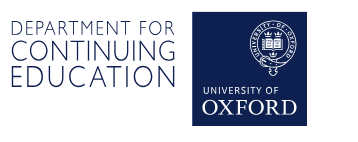Many authors take their own life experience as a starting point for works of fiction. In this discursive course we will be looking at how memory and imagination can work together across a variety of genres to create engaging stories.

Overview
Many authors take their own life experience as a starting point for works of fiction. In this discursive course we will be looking at how memory and imagination can work together across a variety of genres to create engaging stories.
A combination of writing exercises, text analysis, and group debate will form the basis of our sessions together. Students will discuss classic works of fiction in the context of the lives of their authors: placing famous texts within a social and historical framework.
They will also share their own individual pieces of writing. As such, they will gain creative and critical skills which will bring a fresh perspective to the reading experience. Absolute beginners and practicing writers are equally welcome.
This course is part of the Inspiring Oxford summer school.
Programme details
Seminars meet each weekday morning, with afternoons free for course-related field trips, individual study, or exploring the many places of interest in and around the city.
Monday
What We Remember:
We will look at the power of subjective memory: both as a formal, fictional narrative device and as a psychological truth. We use set texts as a stimulus for discussion and then using a series of short writing exercises, students will create an initial personal piece of ‘real life’ writing and thereby get the creative juices flowing.
Tuesday
The Power of Myth:
We will look at the power of the myth in a range of cultures: both in terms of traditional storytelling and modern political ‘spin’. Using set text and contemporary news media, we will look at how a mythic narrative enacts a set of moral values.
We will then discuss how we narrate our personal experiences to fit our sense of our own myths, and how this natural human tendency can be subverted for the creation of original fiction.
Wednesday
Characters We Know:
We will begin with a series of writing exercises, using memory and anecdote as a starting point, to create a range of original characters. We will then discuss the relationship between character and plot, using set texts and visual media. We will discuss how to create original story outlines for our group of characters.
Thursday
Beyond Our Selves:
We will begin by discussing the relationship between an author and the writing process: how we can use story to explore ideas that we care about without lecturing the readers. We will look at set text and interviews to examine how an author’s attitude to his subject matter changes as the story develops. Using a combination of writing exercises and text analysis we will learn about the power of the “opposite” point of view.
Friday
The Critic vs. The Creator:
We will begin by discussing the difference between the critical and the creative mind, and the importance of separating the two throughout the writing process. We will discuss how to plan an extended story outline.
We will also look at the common stylistic mistakes made by new writers and offer tips on how to avoid them. This should give students the skills and the confidence to continue to write, either fiction or autobiography – or a combination of the two.
The history of continuing education at Oxford
Nearly 150 years ago, a movement called 'Oxford Extension' began at the University of Oxford - an initiative that sprang from general educational reforms in the mid-Victorian era, and from a growing national sense of social awareness.
The history of Oxford University's Department for Continuing Education is several stories in one: it's the story of a handful of dedicated Oxford tutors who felt that educational opportunity was essential to the nation's welfare and future;
it's an account of ordinary citizens collaborating with Oxford to design a format of education that served their needs; and it's the story of adult education evolving as successive generations of students, from 1878 to the present day, participated in ever-growing numbers.
The articles below are milestones in our efforts to bring Oxford teaching to the widest possible audience.
© 2025 coursetakers.com All Rights Reserved. Terms and Conditions of use | Privacy Policy